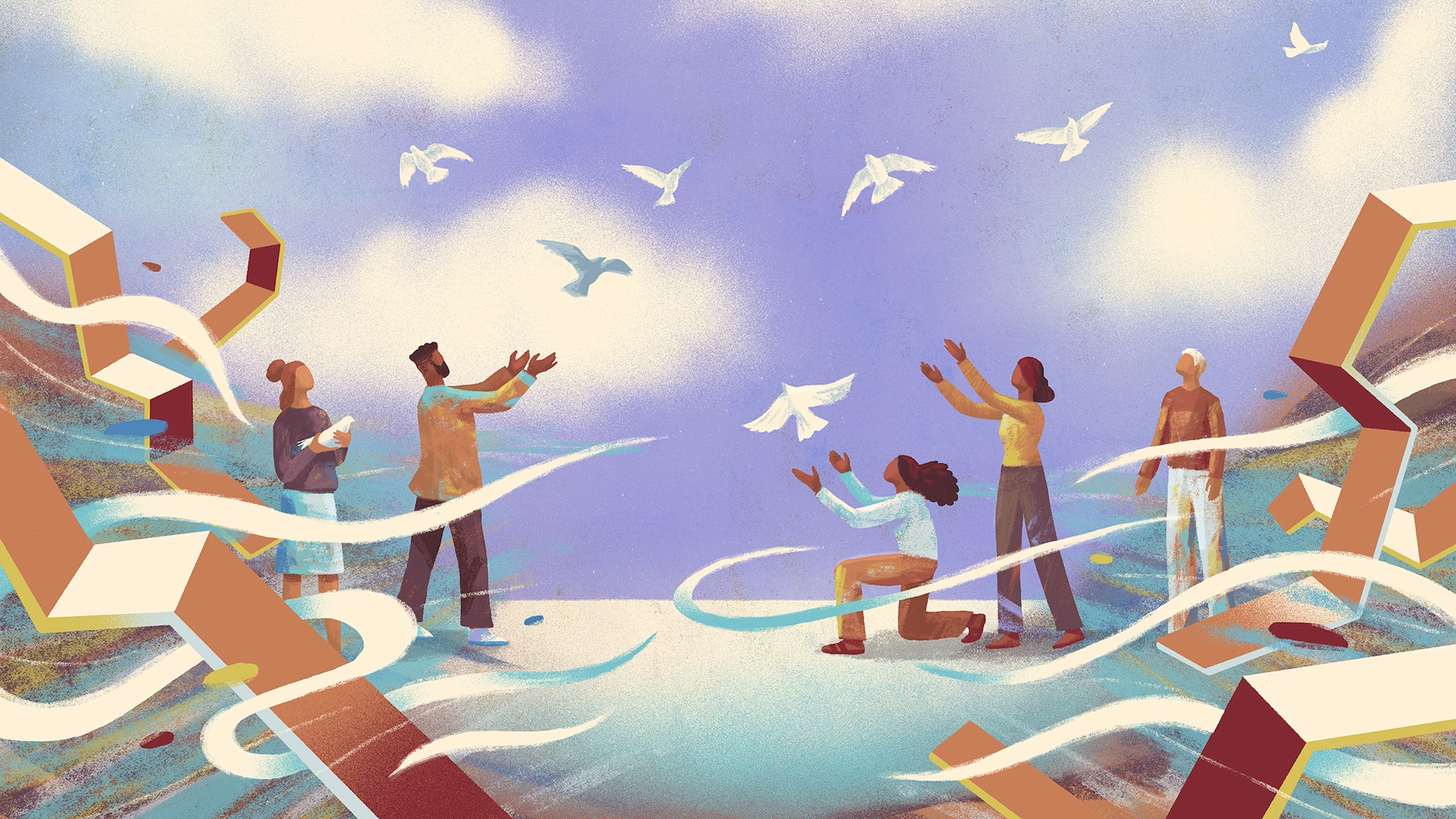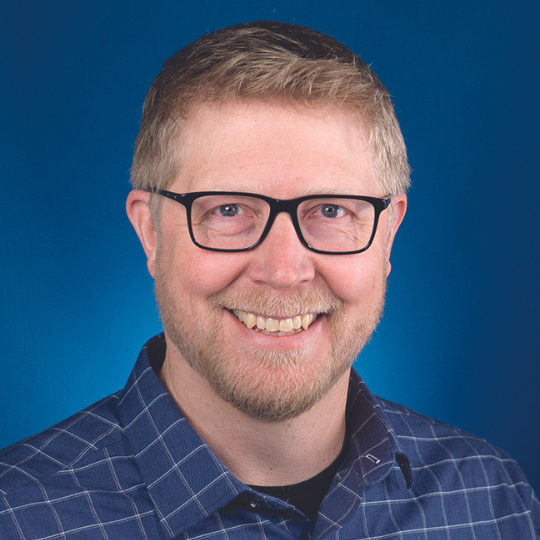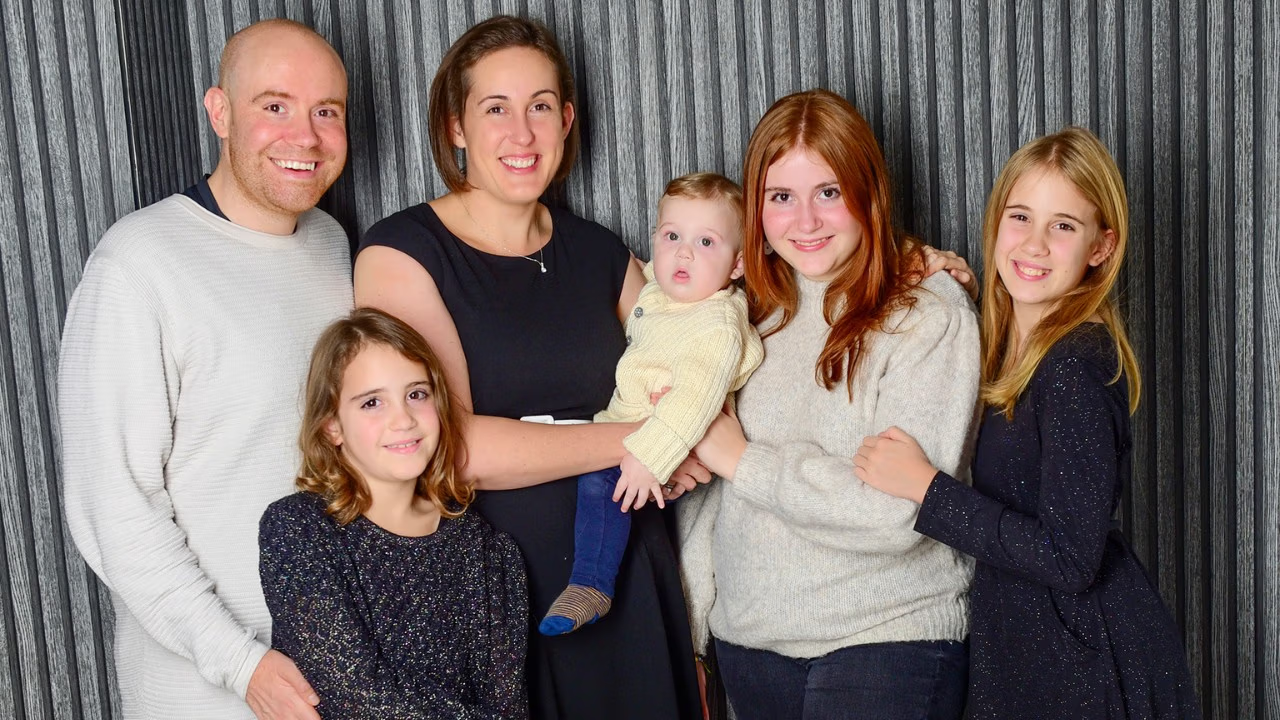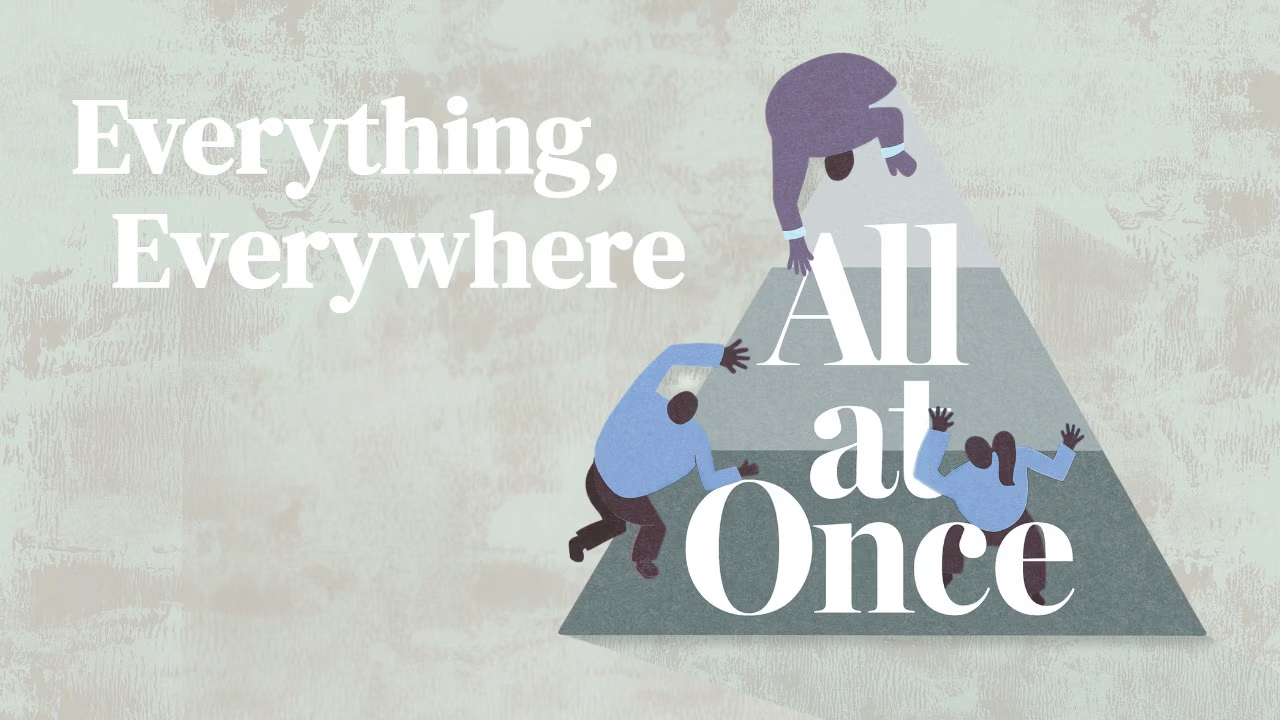Are we ready to make peacemaking central to our mission?
On October 7, 2023, long-standing tensions in Israel-Palestine quickly escalated when Hamas hurled rockets into Israel, causing great human and material destruction. Israel retaliated with airstrikes that devastated the Gaza Strip. Since then, for those of us observing from afar, our news channels have been filled with chaotic images of people who have lost loved ones, pleas for the release of hostages, destroyed buildings, and even bombed-out hospitals.
In the midst of crisis, Covenant World Relief & Development seeks to identify local partners who are experts in the impacted context and who have a deep understanding relief work. Such partners can more safely and conscientiously navigate challenges and make efficient use of local resources. Our active partner in Israel/Palestine is the internationally renowned organization Musalaha, who focuses specifically on peace and reconciliation. “Musalaha” means reconciliation in Arabic, and they work to bring together Israelis and Palestinians, followers of the Jewish, Muslim, and Christian faiths, to begin deconstructing the root causes of the deep-seated animosity between these groups. Using biblical principles, they model inner healing to reclaim one’s ability to love their neighbor, while also addressing systemic injustices.
But the work can be elusive.
Peacemaking takes time
We can look to our sister denomination, the Evangelical Covenant Church of South Sudan and Ethiopia (ECCSSE), for an example. Throughout the course of South Sudan’s young history—it only became independent of Sudan in 2011—the country has faced continuous cycles of violent tribal warfare. As Rev. Mathew Jock Moses, president of the ECCSSE, describes it, “The people are living in hostile situations and are divided into tribal communities even at the church level.” Rev. Moses and the ECCSSE are committed to seeking shalom amid this dark reality, even if it takes a long time. They have developed a peace, healing, and reconciliation program that teaches participants to see the humanity of the “other,” even when the other is from a rival tribe who has committed serious atrocities against their people and families. The process is long, and it requires patience and persistence. In fact, any significant change will most likely be experienced by future generations. We have been partnering with the ECCSSE in this transformative work for almost 10 years, and we are proud to be in it for the long haul.
Peacemaking is difficult to measure
Engaging in peacemaking work involves the challenging task of trying to measure intangible results such as shifting attitudes and opinions. In South America, the youth and young adult organization of the Covenant Church of Colombia are implementing multiple projects that seek to bring peace in countryside towns that have been devastated by cartel violence over the course of decades. Through the young adult–led project, with the guidance of global personnel Julio Isaza, teens are participating in music, sports, drama, and other activities, with the goal of creating positive self-image and seeing Christ in others. Although specific results are difficult to quantitatively measure, we believe that these interventions are changing individuals and the community—as the qualitative evidence demonstrates.
Keila began participating in one of those programs, SehPaz (Be Peace, Make Peace), four years ago as a 10-year-old. Today she says she has found her place in a positive, healthy community. She is learning to play an instrument and dreaming big dreams for her own future. She is on a path to being an agent of positive change in her community.
We do have the privilege of partnering in many community development projects that do include impact that can be clearly measured and reported. One water sanitation and hygiene project in Nepal, for example, has lowered rates of waterborne illnesses by 20% community-wide—a clear, tangible result from a community health intervention. Such impact resonates with our friends and donors, and we celebrate that work.
Peacemaking requires a community response
Last fall Musalaha and Bethlehem Bible College, another partner in the region, asked for help getting aid to people directly impacted by the fighting in the West Bank and other heavily impacted areas. When we shared this invitation to partner in relief work in the form of food goods, clothing, and shelter needs with our Covenant family, donations came in totaling nearly $70,000.
Yet in the initial days of escalating conflict in October, an invitation to support Musalaha and their peacemaking efforts generated a significantly lower response. Our team wondered if our invitation was not clear enough. Perhaps it was lost in the noise of the media. But we also recognize the challenge of demonstrating the tangible impact of these long-term efforts in a complicated situation.
Covenanters have shown remarkable generosity throughout the nearly 80 years of CWRD history, and we know that peace—God’s shalom—is deeply ingrained in our denomination. May we be challenged to bring together these two important values—especially in these days of political and social divisiveness—and to put our own differences aside to prioritize the justice of God’s kingdom. We desire to commit to the long-term process of transformational development and peacemaking in communities around the world, and we invite our sisters and brothers in the Covenant to be part of this journey.
In his book Whole and Reconciled, missiologist Al Tizon wrote, “Peacemaking cannot lie on the periphery of mission; both biblical theology and the fractured state of our world demand that it be front and center in our understanding and practice of Christian witness in the world.” In Israel/Palestine, we as the Covenant are prepared to make our resources available to bring urgent relief to those most in need. Are we also ready to make peacemaking an equally central part of our missiology and discipleship? It will be a long, hard journey that is certain to feel futile at times, but as Jesus said, if we long to be known as children of God, the God of shalom, we must be committed to becoming peacemakers.














